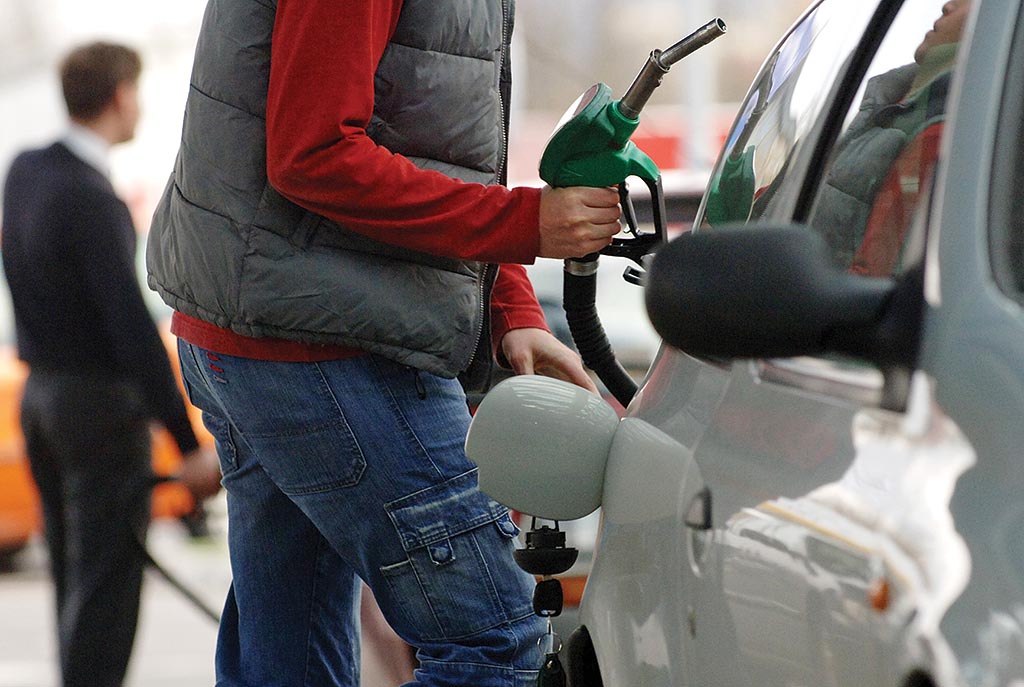If the Golob government is remembered for anything, it will be for its constant new taxes, incompetence, and constant price rises across the board. And here we are again, talking about fuel price rises, with diesel becoming significantly more expensive than petrol, which is ironic (or deliberate) given the government’s environmental aims and the fact that diesel is “less harmful” to the environment. In any case, diesel will now be even more expensive here than in Croatia, where it is significantly cheaper.
At midnight on Wednesday, the prices of petrol, diesel and heating oil outside motorways and expressways rose again. A litre of petrol now costs €1.456, a litre of diesel costs €1.504, and a litre of heating oil now costs €1.081. The government increased excise duties on all three fuels and reintroduced the renewable sources of energy contribution for petrol.
At gas stations outside the motorway and expressway area, during the new 14-day period from the 18th of July 2023 to the 31st of July 2023, the regulated prices of petroleum products will have the following prices:
– €1.456 per litre of 95-octane petrol (NMB-95), an increase of 1.2 cents compared to the current price,
– €1.504 per litre for standard diesel, an increase of 2.3 cents compared to the current price.
A litre of extra-light fuel oil (ELKO), excluding transport costs, will cost €1.081 per litre over the aforementioned period, which is an increase of 2.1 cents. Traders’ margins are limited to a maximum of €0.0983 per litre for diesel and €0.0994 per litre for NMB-95 petrol, in accordance with the government’s regulation on the pricing of petroleum products outside motorways and expressways. The commercial margin for fuel oil (ELKO) shall be a maximum of €0.08 per litre. The government tried to justify its decision by stating that excise duties are being increased for “fiscal sustainability and to seek a gradual normalisation of inflows to the state budget.”
And while the prices of fuels have been gradually increasing since the 9th of May 2023, oil prices have stagnated or fallen on world markets. As we can see, the prices for all fuels have risen a considerable amount in recent months. This happened almost imperceptibly, but that was entirely due to higher excise duties. The Slovenian state has used this period of relative calm on the fossil fuel market to fill the state budget, instead of looking after its citizens and easing inflationary pressures (like, say, Croatia). It is also worth noting that fossil fuel prices not only affect inflation directly, but also indirectly, since all services in a market economy are linked to fuel prices. The state is not willing to optimise its own consumption – even though the Fiscal Council has repeatedly warned it that it is excessive. It is thus pushing the burden of excessive waste of public money onto the shoulders of citizens.
Croatia is expensive for tourists, but it is much cheaper to drive there
It is also worth pointing out that currently, Croatia may be one of the most expensive tourist destinations in Europe, but when it comes to fuel prices, it is among the cheapest in the European Union. Of the EU countries, only Romania, Bulgaria, and Malta can compare with Croatia in terms of low fuel prices, while all the other EU countries have more expensive fuel than Croatia.
Fuel prices have gone up for Croatians, too, but diesel is still much cheaper, which the Golob government could have taken into account, as it is desperate to meet environmental targets at any cost, and these are primarily aimed at reducing carbon dioxide emissions into the environment. In fact, compared to an equivalent petrol engine of the same size and generation, diesel engines emit 20- to 25 percent less Co2 into the environment. And by the way – for comparison: the most expensive petrol in the EU is the Finnish one, where a litre of petrol costs an average of €1.96 and a litre of diesel costs €1.86. Fuel is also very expensive in the Netherlands (petrol €1.99, diesel €1.65), Italy (petrol €1.93, diesel €1.78), France (petrol €1.92, diesel €1.75), Sweden (petrol €1.65, diesel €1.89), Greece (petrol €1.87, diesel €1.56) and Germany (petrol €1.85, diesel €1.63). And while it is true that the prices of fuel are higher in these countries, they also have a very different standard of living from ours – namely, a better one.
Ana Horvat


